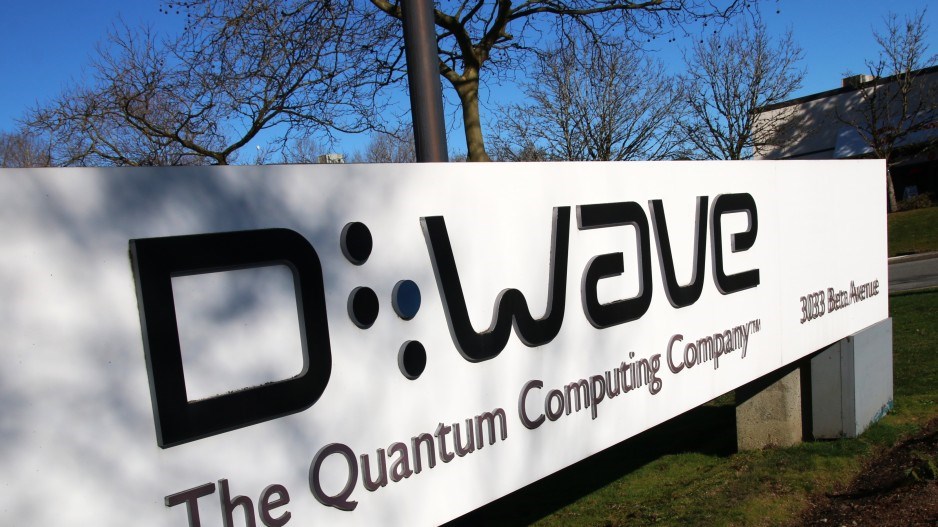In the world of supercomputing, artificial intelligence has taken up much of the oxygen in the room of late—and for good reason. AI is opening up new frontiers that were previously inaccessible through classic computing technology.
But even AI has it limits when it comes to processing information in highly complex systems, such as global finance and logistics, where virtually infinite potential outcomes must be simulated in order to optimize predictions.
Time and energy are among its limitations. Training large language models and deep neural networks for AI involves billions of parameters, and this in turn requires a gargantuan amount of computational work that can take weeks or months and consume enormous amounts of electricity.
For certain highly complex computational tasks, quantum computing holds great promise, thanks to multi-dimensional computational powers that are exponentially faster and less energy intensive than classical computing.
“The thing that’s so exciting is the sort of convergence of AI running with the help of a quantum computer,” said David Isaac, co-founder of Vancouver-based AbaQus, which builds quantum computer solutions for the financial services sector. “You would be able to maybe do things that you could never even imagine doing with a classical computer, no matter how powerful it was.”
The secret sauce in quantum computing is superposition—that weird quantum phenomenon in which a particle, like an electron or proton, can be simultaneously in two potential states at once.
Classical computing is confined to four possible number combinations: 00,01,10 and 11. Quantum computing uses qubits—all four number combinations in superposition—simultaneously. It literally adds an extra dimension to computation that gives it the power to perform multiple tasks at the same time, unlike a classical computer that must perform those computations sequentially.
As was the case with fuel cells, B.C. has become something of a quantum computing centre of expertise, with companies such as D-Wave Quantum Inc. (NYSE:QBTS), 1Qbit and Photonic, and research institutes including the Quantum Algorithms Institute and the Quantum Matter Institute at the University of British Columbia.
While investor confidence in Burnaby-based quantum computing pioneer D-Wave may have flagged of late (the company only recently regained compliance with the New York Stock Exchange after its shares fell below $1 per share for the third time in two years), some businesses appear to betting on D-Wave technology for optimization solutions in areas like finance and logistics.
“With the recent surge of online retail orders, scheduling deliveries can be a complicated task with a lot of room for optimization,” D-Wave said in a recent white paper on real-world applications now using its technology.
Pattison Food Group is one B.C. company that has worked to optimize e-commerce driver scheduling using a quantum hybrid logistics application powered by D-Wave computers.
According to D-Wave’s white paper, an auto-scheduling program implemented in 2022 resulted in an 80 per cent time savings for the Pattison Group.
Other B.C. companies are also exploring quantum computing’s optimization powers for the world of finance and cryptocurrencies.
D-Wave specializes in quantum annealing, which excels at optimization. This promises to be useful in sectors with high degrees of complexity—logistics, supply chain management, financial portfolio optimization and machine learning.
The Quantum Algorithms Institute recently struck a partnership with two B.C. companies—AbaQus and InvestDEFY Technologies—to try to solve challenges in training machine learning models for financial applications using D-Wave’s quantum computing expertise.
AbaQus is developing a research platform for financial organisations to use quantum computing for risk management, optimization and pricing. InvestDEFY Technologies is focused on trading performance in cryptocurrency derivatives markets.
“The financial industry deals with complex datasets, countless variables and market shifts, making it challenging to build more effective predictive models,” said institute CEO Louise Turner. “Our collaboration with D-Wave uses quantum annealing to optimize ‘feature selection’—identifying the most relevant data points to inform the predictive model more efficiently than existing solutions performed on classical computers.”
While regular computers and supercomputing remain quite capable, they can consume a lot of energy when working with large data sets, said Quantum Algorithms Institute CTO Shohini Ghose.
“So that’s another very, very important reason why it’s good to think about quantum, because even with problems that are not technically impossible for classical, it might still be better to use quantum,” Ghose added.
CaixaBank Group has used D-Wave’s quantum-hybrid services “to markedly reduce the computing time necessary to reach an optimal solution to improve the investment portfolio hedging. What normally took the bank several hours of compute time was reduced to just minutes via quantum computing technology—an up to 90-per-cent decrease in compute time over the traditional solution.”
Japanese mobile phone company NTT Docomo Inc. recently completed a pilot project using D-Wave’s quantum-hybrid services to optimize network performance.
“It was able to reduce paging signals by 15 per cent during peak times, which could potentially lower infrastructure costs and enhance network efficiency,” said Murray Thom, D-Wave’s vice president of quantum technology evangelism.
“While a general-purpose solver took 27 hours, D-Wave’s hybrid solver completed the same task in just 40 seconds.”
He added that NTT Docomo is now planning a national rollout of the solution across Japan.
“Nearly every industry, from financial services to logistics and manufacturing, stands to benefit from annealing quantum computing technology because of its ability to tackle highly complex computational problems,” Thom said.




